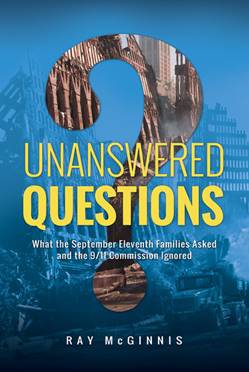Here’s the latest from the crossroads of faith, media & culture: 09/13/23


An impenetrable mystery. That’s how biographer Ellen Vaughn says the late Christian philosopher Elisabeth Elliot viewed the interplay between God and human choice. Speaking with me about her just released book Being Elisabeth Elliot for an interview currently up on The Acton Institute website, the author told me that Elliot – who endured several tragedies in her life, including the loss of two husbands – came to the conclusion that, to the degree that there is a path of human happiness on Earth, it lies in “vigorous acceptance,” believing that “when we accept that which we cannot explain we are free to have a sense of liberty and of peace.”
Harvard Professor Arthur C. Brooks and Oprah Winfrey also tackle the happiness question in their new book Build the Life You Want: The Art and Science of Getting Happier due out next Tuesday. Featured on CBS Sunday Morning, Brooks says four things that are definitely not necessary for happiness are money, fame, power and good looks. In other words everything that social media – which he calls “this laboratory for the earthly goals that actually make you miserable” – holds up as the ultimate prizes in this life. False gods, if you will. For her part, Oprah describes being envious of those who possess those temporal things as “the great destroyer (of happiness).
So, how do you achieve happiness? Brooks suggests that “All happiness is a combination of enjoyment satisfaction and meaning. We need to enjoy our lives – which is not the same thing as pleasure. The pursuit of pleasure will lead you to addiction and misery. Enjoyment as in people and memories…Satisfaction is the joy that we get after a struggle…Meaning is the sense of coherence (that) things happen for a reason. Direction and purpose – There is a reason for things that are happening in my life and there’s a reason for my life…It’s important to have a routine…The truth is all of have suffering in our lives. The job is not to eradicate the suffering. It is to grow and learn from the suffering.”
Oprah adds “You cannot control all of the external circumstances in your life – but you can control how you feel about those circumstances. Referencing the famous line from the classic poem Invictus (“I am the master of my fate, I am the captain of my soul.”) she notes that “You cannot control all of the external circumstances in your life – but you can control how you feel about those circumstances. That, she says, means “Taking control of your emotions and not allowing your emotions to control you. Taking the wheel allows you to be the master of your fate and the captain of your soul.”
So, what is it? Is happiness found in accepting whatever befalls us without resistance (as Jesus did in the garden) or is it in being the master of our fate and the captain of our soul?
Taken together, I think both books reflect the Dialectical Worldview that many seemingly opposite concepts can be true at the same time. We can, for instance, understand the wisdom of accepting what is while doing our best to make things better in the future. Jesus accepted what he had to go through not out of a sense of rolling over for the status quo but as a step toward a better future for all. While none of our decisions will have the impact of on humanity Jesus’ did, we are all likely to confront situations and objectives that will require accepting some degree of discomfort to get to a better place. It can be something as minor as skipping a movie to prepare for an important exam or something far more difficult – but the calm acceptance of reality is not synonymous with giving up. It’s a step toward achieving the positive goals God has placed in our hearts.
As someone who, like Elisabeth Elliot, grew up in a somewhat conservative Christian home – amplified by falling asleep at night while my mother’s radio was tuned to the unhinged rantings of the legendary legalistic End Times and damnation-obsessed radio preacher Herbert W. Armstrong – I often wrestled with these kinds of questions. In hindsight, I can see that I would sometimes self-sabotage out of fear that I was somehow putting my will over God’s will (which is a mindset that leads to depression).
I think, on some level, a lot of believers do that. No matter your particular faith, to succeed it’s important to truly believe that God wants you to succeed and that there is a positive purpose for you doing so. Yes, you accept the sacrifices and the challenges you face and you follow the moral rules of the road but, empowered by the Creator, you push on with faith, hope and love. That is happiness, Don’t give up. Know that God is on your side.
“For I know the plans I have for you,” declares the Lord, “plans to prosper you and not to harm you, plans to give you hope and a future.” – Jeremiah 29:11
John W. Kennedy is a writer, producer and media development consultant specializing in television and movie projects that uphold positive timeless values, including trust in God.
Encourage one another and build each other up – 1 Thessalonians 5:11

